Born in 1950 in Chicago, Gary Johnson studied at Yale before going to Oxford to read for a second undergraduate degree in Modern History. After attending Harvard Law School, he practised as a lawyer for 28 years, taking on significant pro bono work and also chairing a number of legal associations that champion civil rights causes. In 2005, Johnson moved to become the Director of the Chicago Historical Society, which then became the Chicago History Museum. During that time, he also served as district secretary for the Rhodes Scholarships. After retirement, Johnson began teaching in the areas of entrepreneurship and innovation at Lake Forest College, where he is now a member of faculty. This narrative is excerpted from an interview with the Rhodes Trust on 30 May 2024.
Gary Johnson
Illinois & Worcester 1972
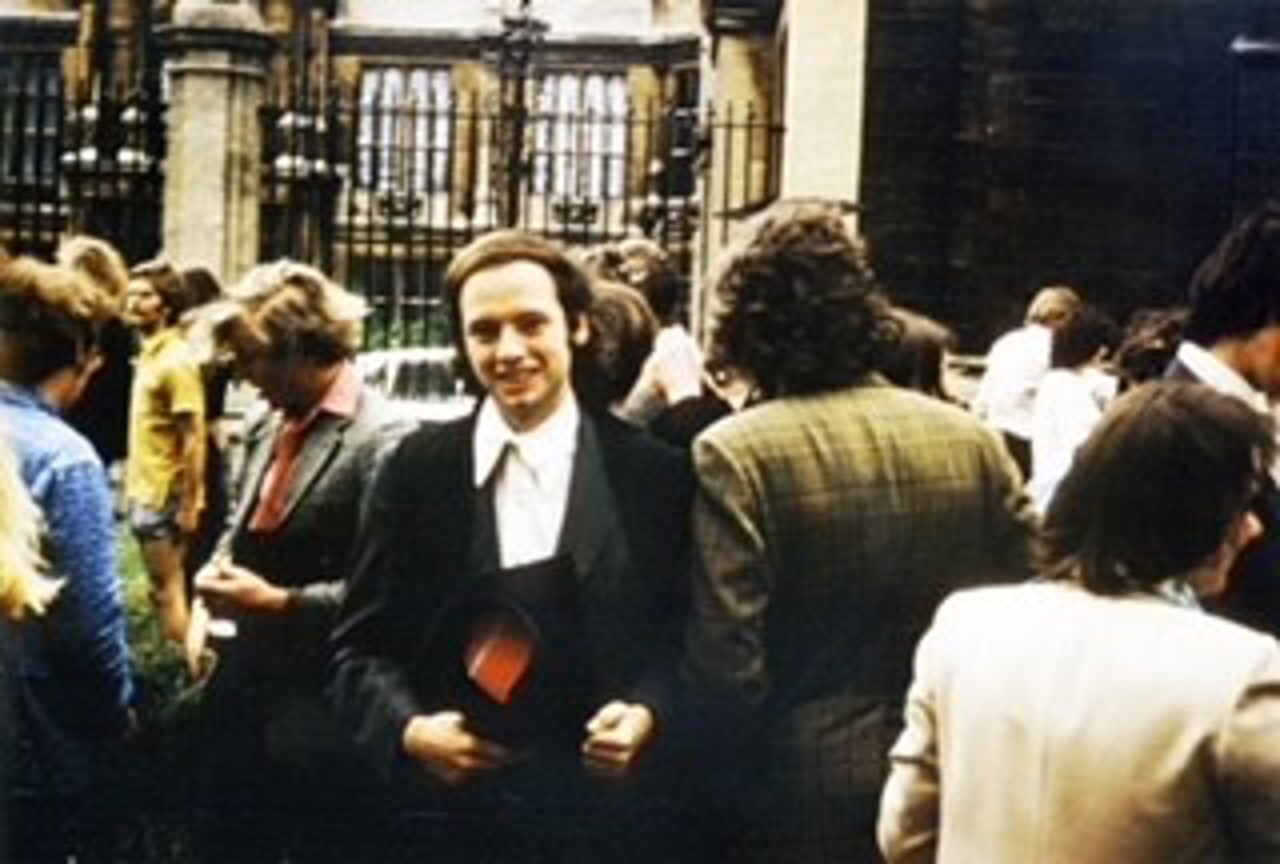
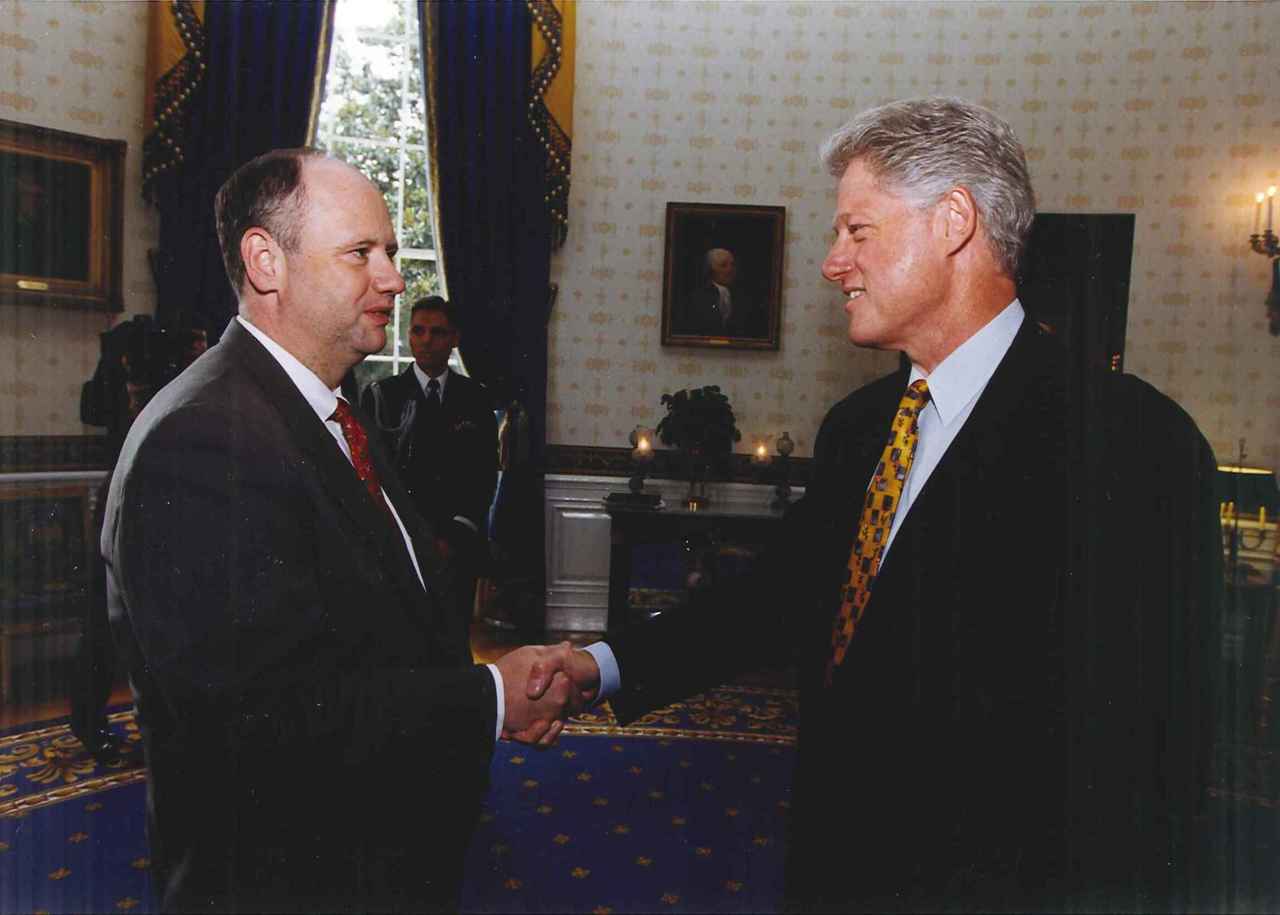
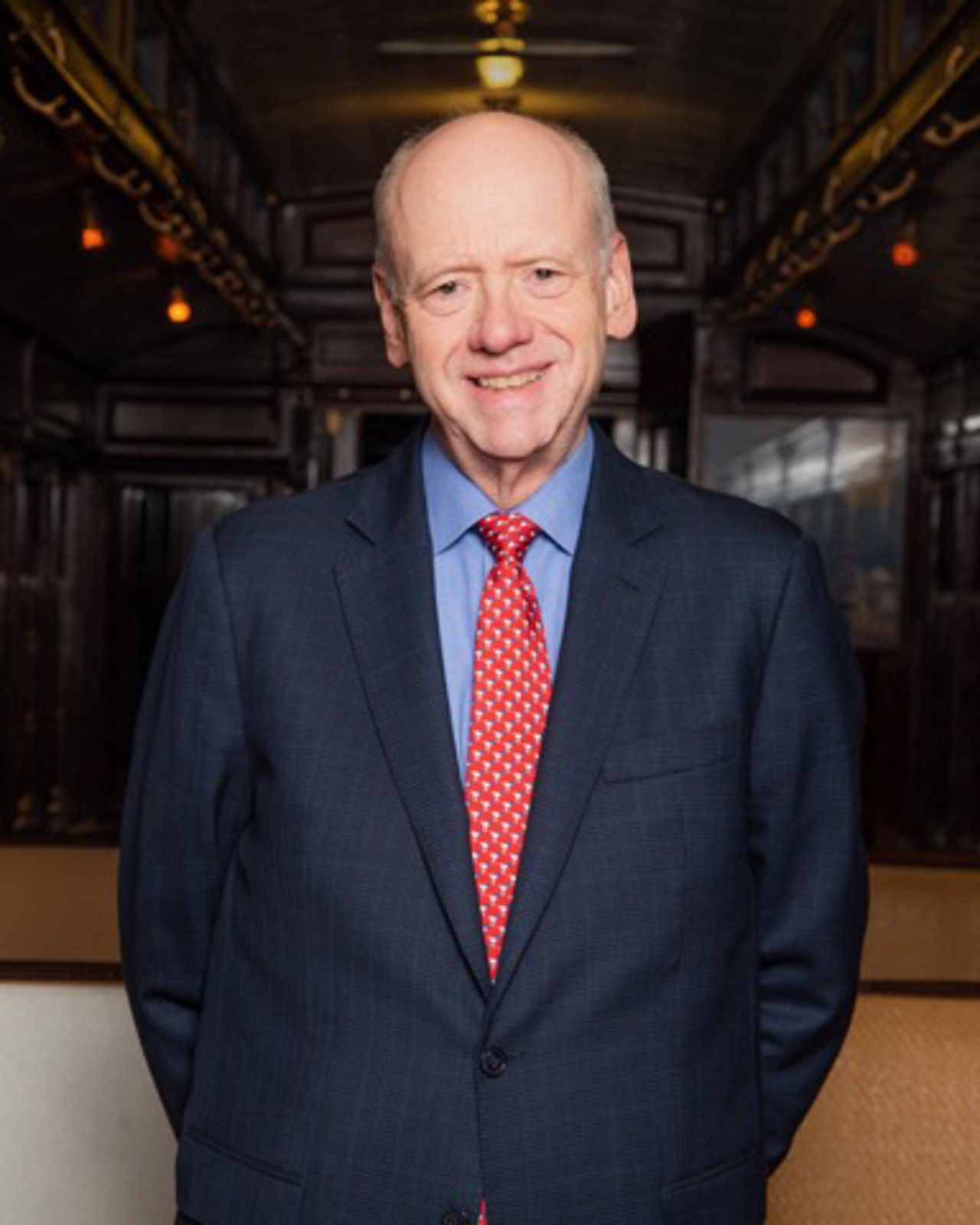
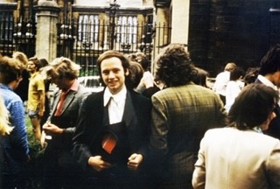
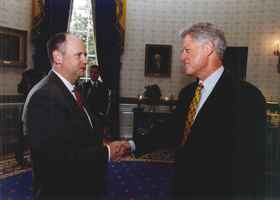
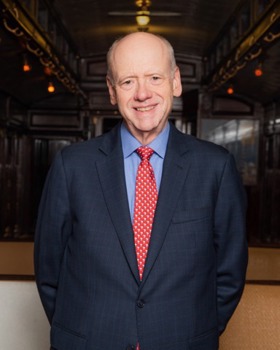
‘I took an interest in history very, very early’
I was born in Chicago, and even during my time at Yale, at Oxford and at Harvard, I always had in mind that I would go back to the Chicago area. I’m the family historian, so I’ve found out a lot about where members of my family came from, and that was mostly Norway, with some from Sweden and some from Germany, but the one thing they have in common across many, many generations has been getting to Chicago and staying there.
I was very lucky, because my parents were great believers in education. In fact, it sounds crazy, but when I was in fourth grade, I had a teacher who asked us, ‘What do you want to be when you grow up?’ and I said, ‘I want to be a Rhodes Scholar.’ Even then, I had a sense that this could be my gateway to getting an education in England. As to extracurricular activities, I would have to say that I was very nerdy, and it was just reading and more reading.
I took an interest in history very, very early. Alongside history, my other passion was learning foreign languages, and in high school, I did a French abroad programme, which made me fearless about using foreign languages and being comfortable speaking them. That’s stayed for me, and now, I am always trying to learn a language. In terms of my career aspirations when I was at school, I was very inspired by President Kennedy mobilising young people to get involved in public service.
On applying for the Rhodes Scholarship
I had a sense that the Ivy League schools were the ones that would teach subjects like history in a more in-depth way, and Yale had a programme called Directed Studies which very much appealed to me. It was taught in seminars and it covered the old western canon of philosophy, ancient Greek, history of art, history, political theory and literature. I found those courses very inspiring.
Alongside my studies, I was very active in the anti-war movement and in civil rights. Martin Luther King lived in Chicago for a time and that had a big impact on me. When Dr King was assassinated, I had a confrontation with the principal of my high school, because he refused to lower the flag to half-mast. As an alternative, I got involved in Operation Breadbasket, which was a project of the Reverend Jesse Jackson to collect foods for the parts of Chicago that had been burned down during the rioting following Dr King’s assassination. My years at college came during a very turbulent time. Buildings at Yale had been set on fire during demonstrations, and friends I were literally tear gassed and pepper gassed in our own dormitories. Just a few days after that came Kent State, where college demonstrators were actually shot and killed.
When I applied for the Rhodes Scholarship, I remember being particularly anxious because I was totally unathletic. When I got to the interview, they said, ‘We notice you’re not into any kind of sport. What do you do to stay fit?’ and I said, ‘Well, my dorm room is on the fourth floor and there’s no elevator.’ Luckily, everyone laughed, so that broke the ice.
‘I’ll always be grateful’
At that time, all of the Rhodes Scholars from the US still travelled over to England by boat. The Warden of Rhodes House, Sir Edgar Williams, was there at Southampton to meet us and take us to Oxford, and then we split up to go to our various colleges. Rhodes House wasn’t really a gathering place back then. Teaching was extremely college-based and as Rhodes Scholars, we were very dispersed. But when we bumped into our Rhodes friends, it was always fun.
I had the chance to do a lot of travelling with friends while I was at Oxford. One friend and I would go to Paris for weekends sometimes, and we also went to Italy. A group of us travelled across eastern Europe together. We didn’t go there with any illusions about communism, but that trip made very clear to us just how difficult the lives were of people who lived in that Soviet era. We saw people being hauled away and arrested, simply because they had spoken to us.
At Oxford, I took the BA in what was known as Modern History. It began with the coming of the Anglo-Saxons and ran to 1918. In other words, it was everything that wasn’t ancient history, and anything after 1918 was considered journalism rather than history. I specialised in the Anglo-Saxons and medieval history, because I wanted to go back as far as I could. I had wonderful tutors, and in Oxford, history was all around you as well. There is nothing like studying an important subject that you care about with what is almost one-one-one, private tuition. I’ll always be grateful that the Scholarship gave me that.
‘A dream come true’
While I was in college, I had spent two summers as an intern in Washington, DC, but it felt like such a company town, and eventually, I was drawn back to Chicago, because of its cultural scene and also because of my family ties there. While I was at Harvard Law School, I was still thinking about public service, but I took a summer job at a the legal firm Mayer Brown & Platt in Chicago, and I absolutely loved it. Pro bono work for non-paying clients was positively encouraged. I realised this could be the kind of job where you’re well provided for but you’re also in a position to help out, and I stayed with that firm for 18 years.
During that time, I became the youngest ever president of the Chicago Council of Lawyers, which had been born in the 1960s and was filled with trouble-making, rebellious, progressive lawyers. That was the start of my involvement in public life. I went on to join the board of Legal Assistance, which supported legal aid for the poor nationally, and I wound up being chair of that too. And then, I was on the board, and later co-chair, of the Lawyers Committee for Civil Rights Under Law. All of those roles gave me great experience in running a non-profit, as well as in fundraising, and being the spokesperson and chair of a national civil rights organisation was a dream come true for me.
I began to look for a route into working full-time for a non-profit, and in 2005, the right thing came along. I learned that the Chicago Historical Society was looking for a new president, and I felt that role brought together everything I was interested in. Even though I wasn’t on the search firm’s list, I managed to get a meeting with them and I was lucky enough to be chosen. It was my perfect job, and all the things I had done until then brought me the experience I needed for the role.
Over my time in different kinds of leadership roles, I have learned, firstly, that leadership is based on continuous learning. Leaders need to keep up with the world of change that we live in. Secondly, leadership needs to be earned. It doesn’t matter what your title is, or what your strategy and vision are. In the end, leadership is a relationship that you have with people where they have a tacit agreement that you be the guide. Now, at Lake Forest College, I’m putting together a course called Voices of Leadership, which is a way for newcomers to the college to learn about leadership and discover their own voice. It’s exciting, and a great privilege, to be able to work with young people in this way.
‘History is a cause. It’s something you have to fight for’
As district secretary for the Rhodes Scholarship, I hugely enjoyed meeting the talented individuals who were applying, and it was great to see how the range of schools from which Rhodes Scholars came widened and the diversity of the Scholarship grew. That core tenet of the Rhodes Scholarship – fighting the world’s fight – continues to be so important, but for every generation, it will mean something different. I like to think of ‘Fighting the world’s fight’ as causes, and for me, history is a cause. It isn’t just something that happens. It’s something you have to fight for, fight to save, fight to give access to. In each generation, we have to find out what the world’s fight is and be part of it.
